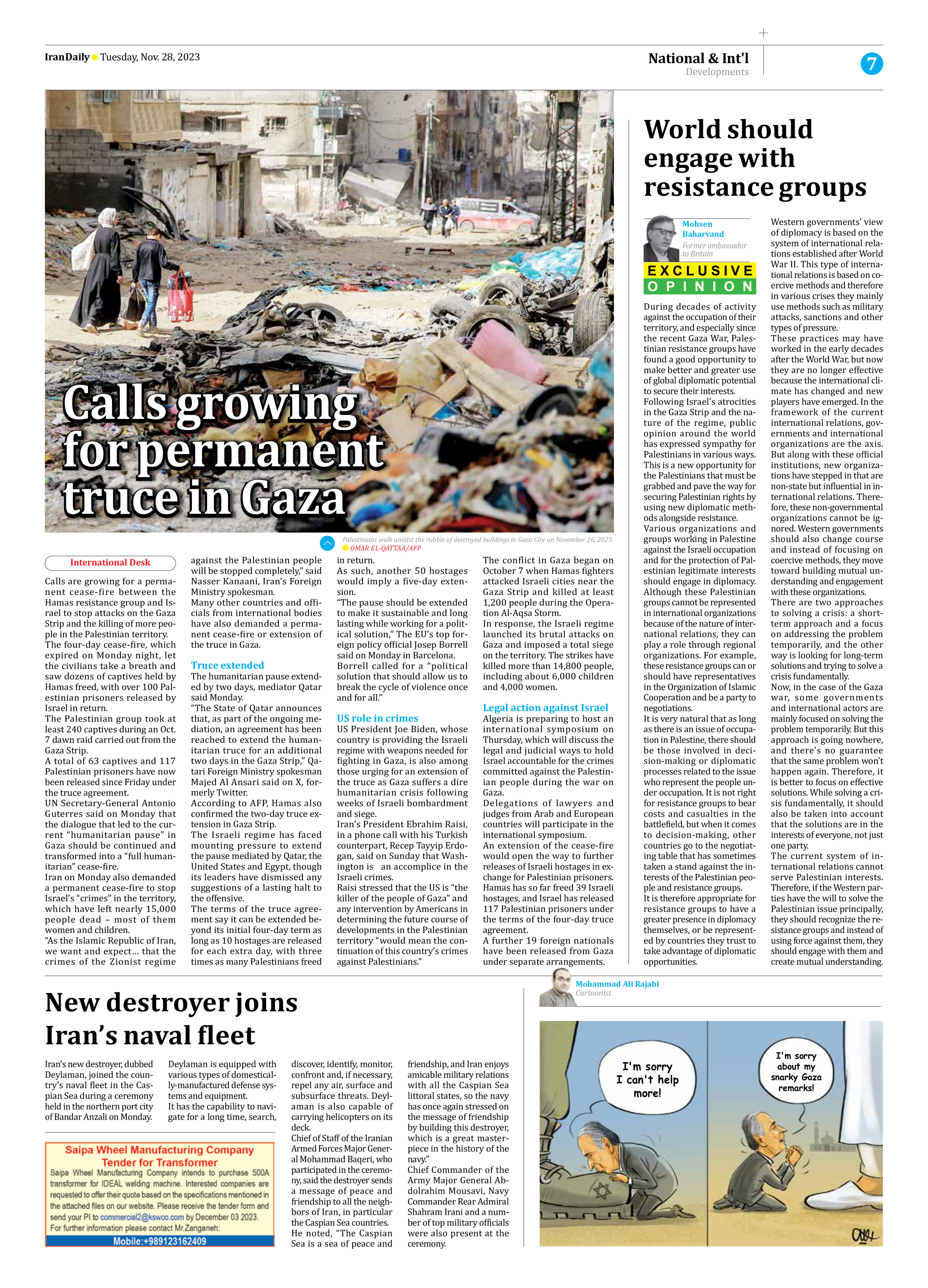
World should engage with resistance groups
Mohsen Baharvand
Former ambassador to Britain
During decades of activity against the occupation of their territory, and especially since the recent Gaza War, Palestinian resistance groups have found a good opportunity to make better and greater use of global diplomatic potential to secure their interests.
Following Israel’s atrocities in the Gaza Strip and the nature of the regime, public opinion around the world has expressed sympathy for Palestinians in various ways. This is a new opportunity for the Palestinians that must be grabbed and pave the way for securing Palestinian rights by using new diplomatic methods alongside resistance.
Various organizations and groups working in Palestine against the Israeli occupation and for the protection of Palestinian legitimate interests should engage in diplomacy. Although these Palestinian groups cannot be represented in international organizations because of the nature of international relations, they can play a role through regional organizations. For example, these resistance groups can or should have representatives in the Organization of Islamic Cooperation and be a party to negotiations.
It is very natural that as long as there is an issue of occupation in Palestine, there should be those involved in decision-making or diplomatic processes related to the issue who represent the people under occupation. It is not right for resistance groups to bear costs and casualties in the battlefield, but when it comes to decision-making, other countries go to the negotiating table that has sometimes taken a stand against the interests of the Palestinian people and resistance groups.
It is therefore appropriate for resistance groups to have a greater presence in diplomacy themselves, or be represented by countries they trust to take advantage of diplomatic opportunities.
Western governments’ view of diplomacy is based on the system of international relations established after World War II. This type of international relations is based on coercive methods and therefore in various crises they mainly use methods such as military attacks, sanctions and other types of pressure.
These practices may have worked in the early decades after the World War, but now they are no longer effective because the international climate has changed and new players have emerged. In the framework of the current international relations, governments and international organizations are the axis. But along with these official institutions, new organizations have stepped in that are non-state but influential in international relations. Therefore, these non-governmental organizations cannot be ignored. Western governments should also change course and instead of focusing on coercive methods, they move toward building mutual understanding and engagement with these organizations.
There are two approaches to solving a crisis: a short-term approach and a focus on addressing the problem temporarily, and the other way is looking for long-term solutions and trying to solve a crisis fundamentally.
Now, in the case of the Gaza war, some governments and international actors are mainly focused on solving the problem temporarily. But this approach is going nowhere, and there’s no guarantee that the same problem won’t happen again. Therefore, it is better to focus on effective solutions. While solving a crisis fundamentally, it should also be taken into account that the solutions are in the interests of everyone, not just one party.
The current system of international relations cannot serve Palestinian interests. Therefore, if the Western parties have the will to solve the Palestinian issue principally, they should recognize the resistance groups and instead of using force against them, they should engage with them and create mutual understanding.







